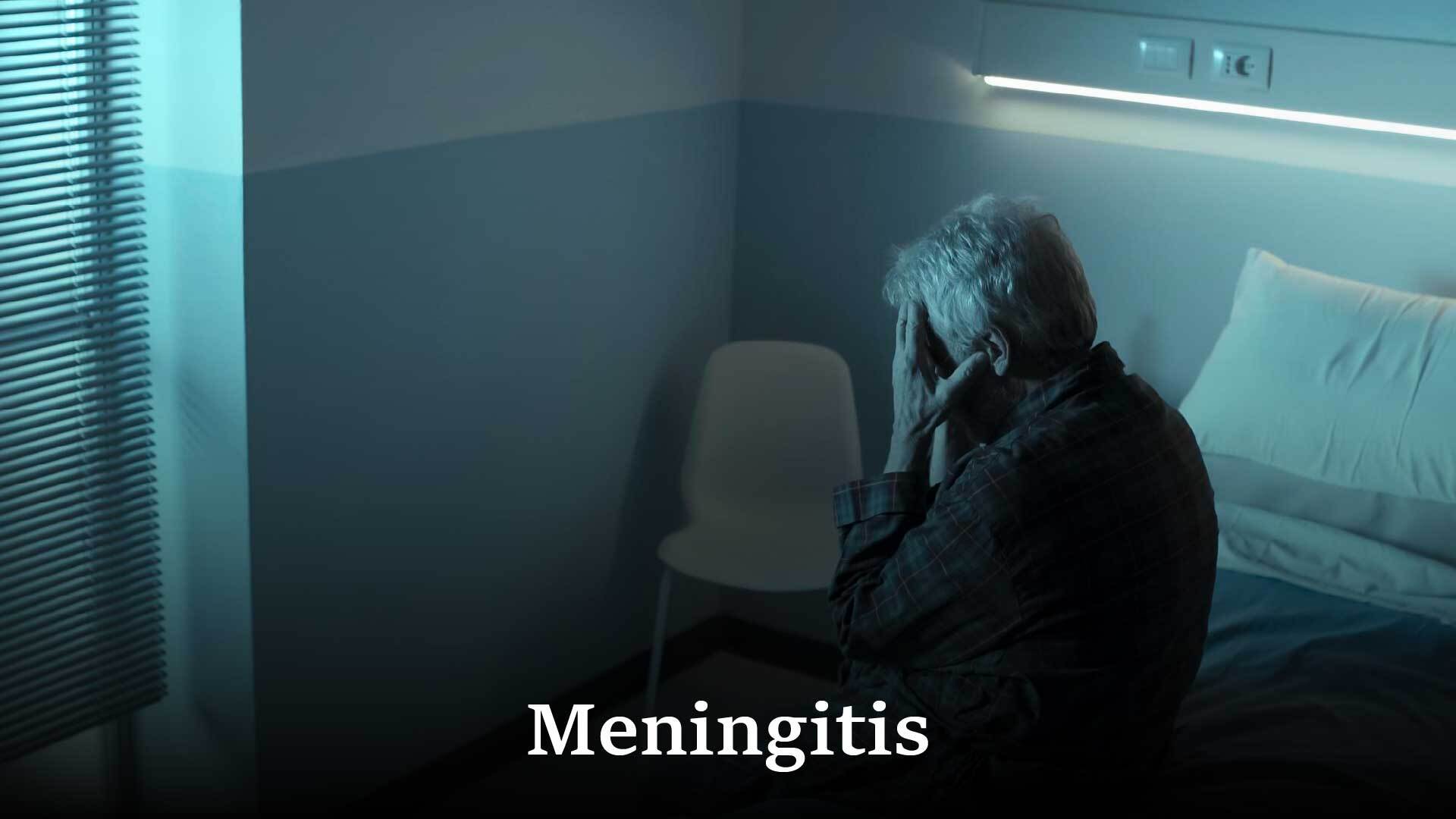What is Meningitis? and it is Compulsory Now for Umrah Visa?
Meningitis is a disease of the “meanings” (the lining surrounding the brain and spinal cord) in which the meanings get inflamed due to infection.
The Spread of Meningitis:
Meningitis is a contagious disease transmitted and spread through the exchange of saliva in people. Every day actions like coughing, sneezing, sharing utensils, living in close proximity (dormitories or common areas), congregation of a large number of people in an area (like during Hajj and Umrah), smoking or being exposed to smoke, and lifestyle factors like late nights out, irregular sleeping habits and improper diet, that lead to weakening of the immune system can spread the disease.
Types of Meningitis
Although Bacterial Meningitis and viral are the two most common types of meningitis, the other types of meningitis are Fungal, Noninfectious, and Parasitic.
Bacterial Meningitis is a severe type of the disease and can be deadly if not treated in time. One of its types, though rare is, Meningococcal Meningitis causing serious complications that may result in amputations, scarring, and brain damage. If not treated in time Death may also occur. Unlike Viral meningitis is the most common forms of Bacterial Meningitis can be prevented by vaccination as recommended by medical sources.
- The symptoms of Meningococcal Meningitis and Septicemia may include severe headache, fever, cold hands and feet, vomiting, muscle/joint pain, sensitivity to bright light, sleepiness, confusion, seizures (fits) and loss of consciousness.
- Babies and young children may also refuse to eat or take regular feed, cry or moan without any reason, are irritable, listless and unresponsive when called, display jerky movements or become stiff or floppy, have rapid breathing.
- Septicemia can result in a red, purplish rash that does not lessen when pressure is applied. (Test: Press a clear glass tumbler against the skin where the rash is, if this does not cause the rash to fade suspect Septicemia).
However a rash may not appear all the time, so if any of the symptoms are seen or if meningitis is suspected, immediately move the patient to the medical center without waiting for a rash to appear.
Viral meningitis is the most common, and less serious, type of meningitis, and hard to diagnose as the symptoms are often so mild that they are mistaken for the flu.
- Symptoms Infants: Fever, irritability, poor eating habits, sleepiness or trouble waking up from sleep, lethargy.
- Adults: Fever, headache, stiff neck, sensitivity to bright light, sleepiness or trouble waking up from sleep, nausea, vomiting, lack of appetite, lethargy (a lack of energy).
Treatment: Usually people with Viral Meningitis get over it within 7 to 10 days on their own.
Medical attention: Although the initial symptoms of Viral Meningitis are similar to Bacterial Meningitis, anyone suspected to have meningitis should immediately be taken to a doctor for diagnosis and treatment before it gets serious. Viral meningitis is more common in children than in adults and has a greater incidence of occurrence during the summer season.
Prevention
No vaccines are available to protect you against viruses that commonly cause Viral Meningitis. However, doing the following will help lower your chances of getting infected or spreading the disease to other people:
- Wash hands with soap and water, especially after toilet visit, coughing or blowing your nose.
- Try not to touch your or another face with unwashed hands.
- Do not have close contact like going close to the face of another person, hugging, sharing utensils of any kind with suspected or sick people.
- Cover mouth and nose when you cough or sneeze with a tissue or a handkerchief, not with your hands.
- Keep surfaces that are touched frequently like toys and doorknobs, clean and disinfected, especially if someone is sick.
- Stay home when sick to prevent others from exposure to the illness.
Side effect of Meningitis Vaccination
Usually Meningitis b Vaccination does not have any adverse side effects for most of the people. However, recent studies show that some patients with Viral Meningitis have developed short-term memory loss and low attention span. Also, children who were given viral meningitis vaccination under the age of one may develop subtle neurological problems later in life.
Some people feel sore or have redness at the point of injection, which may last for 24 to 48 hours.
Sometimes children may get a mild fever, and cry or become irritable for a short time after the injection. Indications of nausea or diarrhea have been seen. Headache and muscle aches for a short time can occur in some older children.
Risk management
Vaccination on schedule as given by a doctor or medical service provider for diseases like measles, mumps, chickenpox, and influenza, which may lead to Viral Meningitis, will prevent the disease later.
Check with the medical practitioner about which Meningitis Vaccine is to be given to infants, children, young adults, and people over 55 years of age.
Although pregnant females can be vaccinated, consulting a doctor is recommended.
Protection against mosquitoes and other insect bites; control or eliminates mice and rodents also prevent the spread of the disease.
Travelers can reduce risk of exposure and contracting the disease by avoiding overcrowded accommodation and areas where possible. People without a spleen or if spleen does not work properly will be recommended to receive the Men C and Meningitis vaccine ACWY, depending on age and how your doctor advises you.
Vaccinating with Vaccine (A, C, W, Y), and Vaccination Certificate as proof of vaccination attached with Visa Application, is required for all Hajj and Umrah Pilgrims and workers travelling to Saudi Arabia.
Meningococcal Meningitis in Saudi Arabia
Outbreaks of meningococcal meningitis were reported in Saudi Arabia during the Hajj seasons1987, 2000 and 2001.
The unavoidable overcrowding in all public access areas during Hajj and Umrah, neglect of personal hygiene by pilgrims as they give more importance to religious rites. Irregular and improper diet habits (food, drink, timings etc.); physical exertion while following the rites of worship and remaining awake for long periods; contribute to exposure and a higher risk of contracting Meningococcal Meningitis during Hajj and Umrah.
The Saudi Embassy London Visa Requirements for Umrah packages 2015 mandates all applicants to attach a Vaccination Certificate against Meningitis b vaccination with their visa application.
Pilgrims for Hajj and Umrah in Saudi Arabia come from all over the world and some are from the known risk areas like the African Meningitis Belt, and countries with low immunization regimes, which exposes the pilgrims from the freedom of Meningitis areas to the infection as the disease is contagious. Hajj and Umrah 2015 Pilgrims in Saudi Arabia
Hajj is the Muslim pilgrimage to Mecca (Makkah) in Saudi Arabia and happens in the Muslim month of Zil Hajj. Umrah is the shorter discretionary pilgrimage that Muslims can undertake at any time of the year.
Outbreaks of Meningococcal meningitis have happened during the Hajj in previous years, therefore the Saudi Arabian government mandates that all pilgrims for Hajj and Umrah 2015 are immunized with Meningococcal Meningitis ACW135Y vaccine at least ten days before travel and not more than three years before travel. Proof of Vaccination Certificate is an entry requirement for pilgrims and is to be attached with the Saudi Embassy London Umrah visa form.
Prevention is Better than Cure: Keeping the dangerous nature of the meningococcal disease you should take the step to avoid getting the disease by getting vaccinated as soon as you can. (image credited to meningitis.org, huffingtonpost.ca, meningitis.org, universitybusiness.com, famous-places.com)
Contact Us
Whatsapp: 07418378756
Complaint: 0203-500-0947
Email: Info@makkahtour.co.uk
Complaint: Complaint@makkahtour.co.uk













